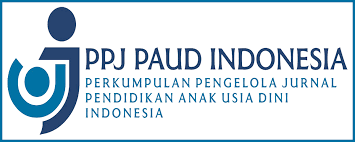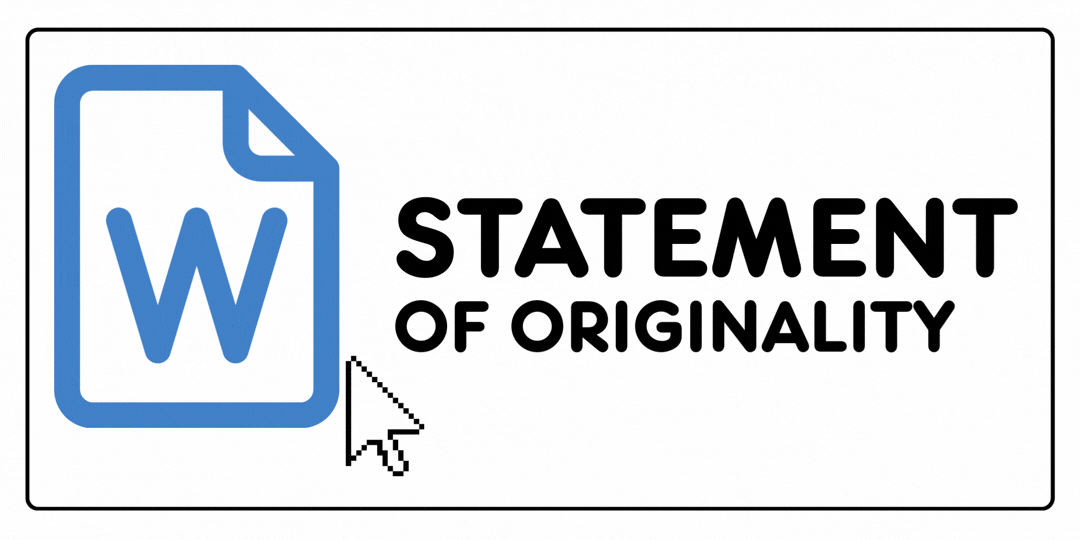The Relationship between Parents' Understanding and Expectations with Project-Based Learning Reviewed from Age and Educational Status
DOI:
https://doi.org/10.26877/paudia.v14i1.1285Keywords:
Parents, Understanding, Expectation, Project Based LearningAbstract
Parent’s profile is important in early childhood development. The purposes this research were to analyze acorrelation 1) parents’ understanding with PjBL; 2) parents’ understanding with PjBL in view of parents’ age 3) parents’ expectation with PjBL; 4) parents’ expectation with PjBL in view of parents’ age; 5) parents’ understanding and expectation with PjBL; 6) parents’ understanding and expectation with PjBL in view of parents’ education status. Quantitative method used in this research.The results of this research: 1) There is a correlation between parents’ understanding with project based learning with value 0,531; 2) There is a correlation between parents’ understanding with project based learning in view of parents’ age with value 0,532; 3) There is a correlation between parents’ expectation with PjBL with value 0,513; 4) There is a correlation between parents’ expectation with project based learning in view of parents’ age with value 0,510; 5) There is a correlation between parents’ understanding and expectation with PjBL with value 0,668; 6) There is a correlation between parents’ understanding and expectation with PjBL in view of parents’ education status with value 0,794. The conclusion of this research was profile influenced project based learning in kindergarten.
References
Ariyana, Y., Pudjiastuti, A., Bestary, R., & Zamroni. (2018). Buku Pegangan Pembelajaran Keterampilan Berpikir Tingkat Tinggi Berbasis Zonasi. Kementerian Pendidikan Dan Kebudayaan, 1–87.
Asilaka, R., Idris, M., & Said, A. (2022). Penerapan Metode Proyek untuk Meningkatkan Kreativitas Anak Usia Dini di Aisyiyah Bustanul Athfal VII Palu. Early Childhood Education Indonesuan Journal, 2(1), 73–78.
Asmawati, L. (2021). Peran Orang Tua dalam Pemanfaatan Teknologi Digital pada Anak Usia Dini. Jurnal Obsesi : Jurnal Pendidikan Anak Usia Dini, 6(1), 82–96. https://doi.org/10.31004/obsesi.v6i1.1170
Boonk, L., Gijselaers, H. J. M., Ritzen, H., & Brand-Gruwel, S. (2018). A review of the relationship between parental involvement indicators and academic achievement. Educational Research Review, 24(February), 10–30. https://doi.org/10.1016/j.edurev.2018.02.001
Bustan, R., Nurfadilah, N., & Fitria, N. (2017). Harapan Orang Tua dalam Mendidik Anak Usia Dini.JURNAL Al-AZHAR INDONESIA SERI HUMANIORA, 3(2), 159. https://doi.org/10.36722/sh.v3i2.205
Daflora, R., & Jaya, R. P. (2019). Analisis Pemahaman Orang Tua Siswa Akan Keterlibatannya Dalam PAUD. PAUDIA : Jurnal Penelitian Dalam Bidang Pendidikan Anak Usia Dini, 8(2), 10–19. https://doi.org/10.26877/paudia.v8i2.4606
Farida, N., & Rasyid, H. (2019). The Effectiveness of Project-based Learning Approach to Social Development of Early Childhood. 296(Icsie 2018), 369–372. https://doi.org/10.2991/icsie- 18.2019.67
Hill, N. E., Castellino, D. R., Lansford, J. E., Nowlin, P., Dodge, K. A., Bates, J. E., & Pettit, G. S. (2004). Parent academic involvement as related to school behavior, achievement, and aspirations: Demographic variations across adolescence. Child Development, 75(5), 1491–1509. http://files/640/Hill et al. - 2004 - Parent academic involvement as related to school behavior, achievement, and aspirations Demographic variations acro.pdf
Indarta, Y., Jalinus, N., Waskito, W., Samala, A. D., Riyanda, A. R., & Adi, N. H. (2022). Relevansi Kurikulum Merdeka Belajar dengan Model Pembelajaran Abad 21 dalam Perkembangan Era Society 5.0. Edukatif : Jurnal Ilmu Pendidikan, 4(2), 3011–3024. https://doi.org/10.31004/edukatif.v4i2.2589
Iwani, F. N. (2022). Persepsi Tentang Pembelajaran Menyenangkan dan Pembelajaran Bermakna bagi Guru MA di Kalimantan Timur. Journal of Instructional and Development Researches, 2(3), 106–114. https://doi.org/10.53621/jider.v2i3.85
Kibici, V. B. (2022). The Effect of Project-Based Learning Approach on Lesson Outcomes, Attitudes and Retention of Learned in Secondary School Music. OPUS-Journal of Society Research, 19(49).771–783.
Kokotsaki, D., Menzies, V., & Wiggins, A. (2016). Project-based learning : a review of the literature. Improving Schools, 19(3), 267–277.
Kurniawan, A., Ningrum, A. ., Hasanah, U., Dewi, N. ., Putri, N. ., Putri, H., & Uce, L. (2023).Pendidikan Anak Usia Dini. In Global Eksekutif Teknologi.
Kurniawati, F., & Widiastuti, A. A. (2022). Peran Orang Tua Dalam Mengenalkan Pendidikan Seks Pada Anak Di Tk Tunas Rimba Kota Salatiga. PAUDIA : Jurnal Penelitian Dalam Bidang Pendidikan Anak Usia Dini, 11(2), 548–561. https://doi.org/10.26877/paudia.v11i2.12277
Latifah, E., & Kuswanto, H. (2018). Pengembangan Blog sebagai Media Pembelajaran Berbasis Proyek. Jurnal Pendidikan Matematika Dan Sains, 6(1), 93–104. https://journal.uny.ac.id/index.php/jpms/article/view/21223/pdf
Li, Y. ling. (2012). The negotiated project-based learning: Understanding the views and practice of kindergarten teachers about the implementation of project learning in Hong Kong. Education 3- 13, 40(5), 473–486. https://doi.org/10.1080/03004279.2010.544662
Nugroho, A., Hawanti, S., & Pamungkas, B. T. (2021). Kontribusi Orang Tua Dalam Pendampingan Belajar Siswa Selama Masa Pandemi. Jurnal Basicedu, 5(4), 1690–1699. https://doi.org/10.31004/basicedu.v5i4.969
Siregar, D. M., Simatupang, E. M., Harahap, T. A., Yus, A., & Simaremare, A. (2022). Analisis Efektifitas Model Belajar Bermain Berbasis Proyek Tema Lingkunganku Pendidikan Anak Usia Dini. Journal of Social Interactions and Humanities, 1(1), 27–36. https://doi.org/10.55927/jsih.v1i1.453
Tsybulsky, D., Gatenio-Kalush, M., Abu Ganem, M., & Grobgeld, E. (2020). Experiences of preservice teachers exposed to project-based learning. European Journal of Teacher Education, 43(3), 368–383. https://doi.org/10.1080/02619768.2019.1711052
Uyun, H. A., & Diana, D. (2023). Implementasi Kegiatan Project-based Learning Menggunakan Media Loose Parts pada Anak Usia 5-6 Tahun. PAUDIA : Jurnal Penelitian Dalam Bidang Pendidikan Anak Usia Dini, 12(2), 240–258. https://doi.org/10.26877/paudia.v12i2.16510
Wang, M. Te, & Sheikh-Khalil, S. (2014). Does Parental Involvement Matter for Student Achievement and Mental Health in High School? Child Development, 85(2), 610–625. https://doi.org/10.1111/cdev.12153
Downloads
Published
Issue
Section
License
Copyright (c) 2025 Elly Indrawati, Tri Joko Raharjo, Ali Formen

This work is licensed under a Creative Commons Attribution-NonCommercial-ShareAlike 4.0 International License.







